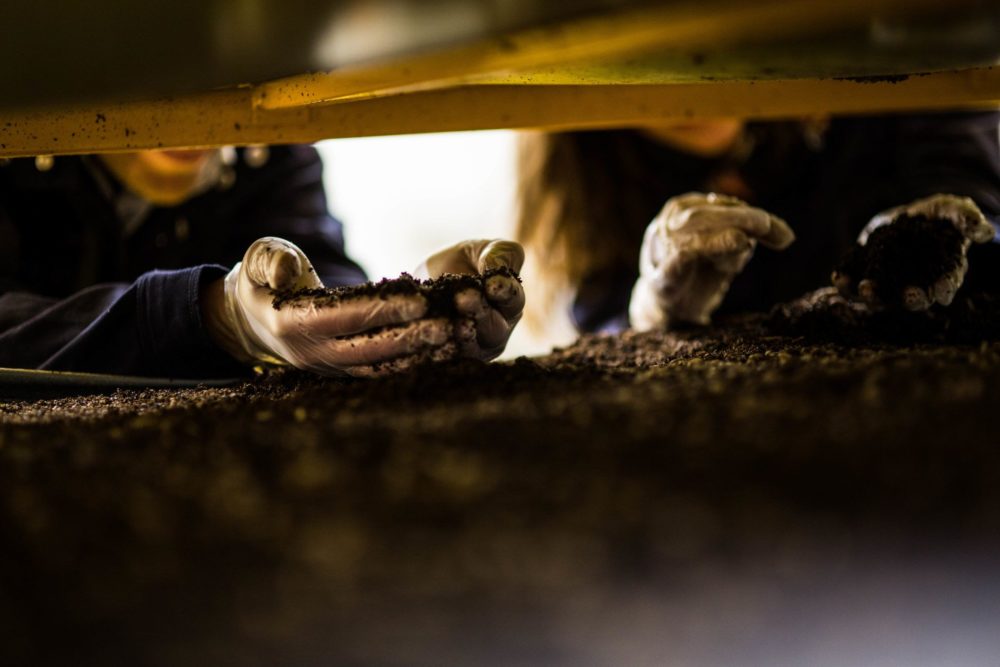French insect farming startup InnovaFeed and US agribusiness giant ADM have entered into a strategic partnership agreement which will see the two collaborate on insect protein production.
- The Paris-based startup will supply its black soldier fly protein to ADM’s pet foods division in order to create “high-quality nutritional” products with “a significantly lower carbon footprint and land requirement” than conventional livestock protein, they said in a statement.
- The deal builds on an existing relationship which saw InnovaFeed announce the construction of “the world’s largest insect farm” next to ADM’s corn processing plant in Decatur, Illinois in 2020. The facility will produce 60,000 metric tons of protein and 20,000 tons of oils for pet food and livestock feed, in addition to 400,000 tons of fertilizer, Reuters reports.
On background:
Insect species such as black soldier flies, mealworms, and crickets can produce edible protein far more efficiently than traditional livestock like cattle, pigs, and sheep (and can be used as feedstock for them.)
- The animals are far smaller, allowing insect ‘farms’ to use much, much less land than, say, a cattle ranch or piggery. They also tend to be resilient in a wider range of environments — meaning they can be farmed in a variety of conditions, including indoors — and can be fed on organic waste, enabling circular systems. They also require much less water.
- Dependent on the species, farmed insects can be used to procure various oils, chemicals, and other industrial materials in addition to protein. Furthermore, the latter can be processed into formats such as powder, providing food manufacturers with added flexibility.
- Much like their (very distant) cousins cattle, chickens, and other traditional livestock, their excreta — frass — can add value through its use as fertilizer.
Why it matters:
The ADM-InnovaFeed partnership looks set to be one of the highest-profile to date in the insect protein space – and among the first involving a major agrifood corporate.
- InnovaFeed previously teamed up with another agribusiness giant, Cargill, on aquaculture and swine feed; as well as ingredients company Barentz and crop inputs firm Hello Nature.
- Its compatriot Ÿnsect, which raises mealworms in tech-enabled facilities, doesn’t appear to have struck any high-profile partnerships so far – though late last year it collaborated with “ultra-premium” US pet food brand Pure Simple True to launch its first commercial product.
- In the UK, Better Origin has joined forces with supermarket chain Morrisons to place its black soldier fly “mini-farms” on the latter’s egg farms as a sustainable source of chicken feed. The flies will be fed on waste produce from Morrisons’ stores.
The bigger picture:
Pet food represents a market opportunity worth $100 billion and growing at a rate of 4.5% each year, according to ADM’s pet solutions head Jorge Martinez.

According to some calculations, as much as a fifth of all the meat produced by conventional agriculture ends up being fed to our pets; while a quarter of animal ag’s environmental impacts can be attributed to pet food.
This means the pet market is a significant contributor to livestock-related GHG emissions and other negative impacts of animal agriculture — such as high land and water use, run-off, and ecosystem degradation — in much the same way as the production of meat for human consumption. (There’s also the argument that this animal protein should be prioritized for an ever-growing, ever-hungrier human population, rather than being fed to its furry friends.)
And, just like meat for human consumers, startups and entrepreneurs are turning to technologies such as plant-based protein, fermentation, cell-culturing — and insect farming — in an attempt to offer more sustainable alternatives.
However, the regulatory environment for insect protein is still immature, though rapidly evolving: last year, the US approved black soldier flies for use in dog food, while the EU gave the greenlight for insects in pig and poultry feed.
The EU also recently decided to add house crickets, yellow mealworms, and grasshoppers to its list of “novel foods” fit for human consumption.
What they say:
“Pet owners increasingly are demanding the same kind of sustainable, healthy products they eat themselves, and we’re proud to work with InnovaFeed to continue to enhance our ability to meet these needs,” ADM’s Martinez said in a statement.
InnovaFeed co-founder and CEO Clément Ray added: “We’re revolutionizing traditional practices by creating a new, natural, and efficient industrial model on a large scale for sustainably sourced food. Insect protein is the next alternative protein ready to be scaled.”
By the numbers:
According to data from AgFunder, InnovaFeed was the third highest-funded startup globally in the Novel Farming Systems category in 2020, raising $166 million from investors including Creadev and Temasek [disclosure: AgFunder is AFN‘s parent company.]
Ÿnsect took top spot for the year, raising a total of $222 million.




